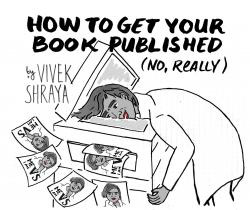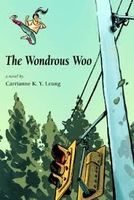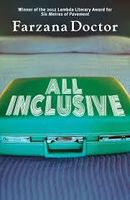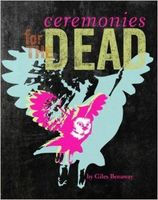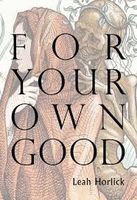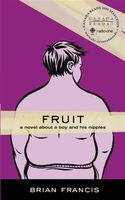How to Get Your Book Published (No, Really)
By Vivek Shraya & Submitted by Kevin
When I asked friends what they would want to know about the literary world, the consistent response I received was: How does someone get published?
A quick Google search reveals that many, many articles have been written about this topic. Despite this, the publishing world remains inaccessible for many writers.
Rather than covering old ground, I decided to ask Canadian writers whom I admire—and who write in a range of genres—to discuss one tip that helped them get published or the one thing they wish they had known when they were trying to get published. Many of these tips helped me get published, but the first suggestion is my own:
Self-Publish Your Work
Many writers, including myself, turn to self publishing as a way to share our writing, rather than to waiting for a traditional publisher to pick up our work. While I maintain that self-publishing is wonderful and important in its own right (not simply a stepping stone towards getting published), I also see how self-publishing helped me get published by a company. Through self-publishing, I learned about paper weights, book design, touring, and marketing; I was my own publisher, agent, and publicist. This first-hand experience and knowledge about the literary world not only prepared me to work with a publishing company, but it also showed potential publishers my commitment and work ethic, which is important because increasingly writers are responsible for many of the promotional aspects of a book release. Self-publishing also helped me build an audience. Publishing is a business and publishing companies want to sell a great product, yes, but they need to know that there is a viable market for your book as well.
Connect With Other Writers
You can never anticipate the opportunities that can come up through meeting and talking to other writers, especially if you are a writer of colour. Building community has been key to my experience and success as a writer. Indigenous and writers of colour in Canada are generally very generous with time and spirit. We need to help each other in order to gain access to a field that is still very white and often needs convincing that our voices need to join the canon.
-Carrianne Leung, author of The Wondrous Woo
Stay Out Of The Slush Pile
Before you send your manuscript to a publisher, find a colleague (not a stranger) who knows someone at the press and who is willing to write an e-mail introduction for you. Also, publishers expect your submission to be polished, so make sure you’ve edited it well. This is your opportunity to win them over! Be brave and ask your friends and colleagues for general feedback. Find someone detail-oriented to check for typos, grammatical errors and inconsistencies.
Your CanLit News
Subscribe to Open Book’s newsletter to get local book events, literary content, writing tips, and more in your inbox
-Farzana Doctor, author of All Inclusive and Six Metres of Pavement
Know Your Medium And Genre
The one thing I wish I'd known before I was published was to read everyone who had published in my medium (poetry). If you want to be successful in your craft, you need to know what has already been written in your field, and you need to be aware of the styles/themes/structures of your chosen craft. Yes, you need to be original and your work should be different than other writers, but it should be related and connected to writing as a whole if it is going to find a receptive audience/publisher. I have had emerging writers tell me that their work is so original that no one has written anything like it or tell me that they only read Indigenous writers. That's a bad way to look at writing. Yours may be a very underrepresented voice, other writers may not have written well in your style or on your theme, and you can choose to privilege other marginalized voices over mainstream writers, but you need to know what you are reacting to (mainstream white literature? exploitative literature? line breaks?) and you need to understand the literary world you are trying to overthrow. Read deeply in your medium: the greats, the good but not celebrated, and the problematic.
-Giles Benaway, author of Ceremonies for the Dead
Choose The Right Publisher
When you are submitting to a publisher, make sure you're actually familiar with their book list and their roster of authors. Find out what kind of work they published last season; ask around to see if anyone you know has worked with their editors. Make sure you are finding the right publisher for your book, and not trying to write the "right" book for the publisher. Ultimately, there are incredible folks out there who want to publish your writing. Sometimes it's just hard to find each other, so make yourself easy to find online, and don't be shy about saying you're a writer. You write. So you are.
-Leah Horlick, author of For Your Own Good and Iron Lung
Be Prepared For Rejection
Dealing with a publisher's rejection is never easy. When I got down, I asked myself why I wanted to get published. It might help aspiring writers to do the same. Is it for fame? Probably won’t happen. Financial gain? Probably won’t happen. Validation? Probably won’t happen. Because your voice deserves its place in this world? Soldier on and make it happen.
-Brian Francis, author of Fruit and Natural Order
The views expressed by Open Book columnists are those held by the authors and do not necessarily reflect the views of Open Book.
Vivek Shraya is a Toronto-based artist whose body of work includes several albums, films, and books. Her first novel, She of the Mountains, was named one of The Globe and Mail’s Best Books of 2014. Her debut collection of poetry, even this page is white, was released this spring, and her first children’s picture book, The Boy & the Bindi, was published this fall. Vivek has read and performed internationally at shows, festivals and post-secondary institutions, including sharing the stage with Tegan & Sara. She is one half of the music duo Too Attached.
Vivek is a 2016 Pride Toronto Grand Marshal, a three-time Lambda Literary Award finalist, a 2015 Toronto Arts Foundation Emerging Artist Award finalist, and a 2015 recipient of the Writers’ Trust of Canada’s Dayne Ogilvie Prize Honour of Distinction.
